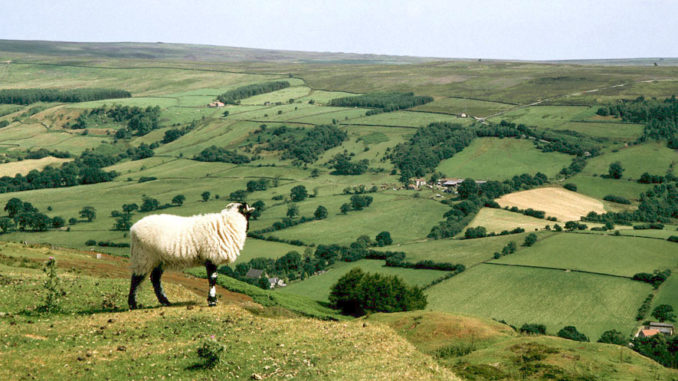
The body responsible for a 1,400-mile network of public rights of way across the North York Moors will start to prioritise the routes it maintains in a belated austerity move.
Members of the North York Moors Park Authority heard it had been five years since they approved a £290,000 cut from its access, recreation and rights of way budget following its government funding being reduced.
The meeting was told a subsequent reduction in manpower meant it was not possible to maintain all of the network “to the same high standard” and it had reluctantly been accepted the condition of the network would decline.
In 2014, members agreed to the changes in principle, such as only maintaining the most popular routes for visitors and residents, but no action had since been implemented, leaving the park’s Rangers unclear over which routes they should maintain.
A report to members stated there had been “huge improvements” in the rights of way network in recent year, but in future most of the rights of way would be classed “non-priority routes” and only maintained to an “optimum basic standard”. The authority will aim to keep 85 per cent of priority routes as ‘easy to use’.
The report states Rangers will be charged with focusing their efforts on routes which will deliver the greatest benefit in terms of public enjoyment.
It states: “Reports of items considered dangerous anywhere on the network will be investigated and made safe as soon as possible where this is a national park authority responsibility. In many cases, maintenance responsibility for furniture items and obstructions will lie with the landowner.
Debbie Trafford, the authority’s head of recreation and ranger service, added the park authority would not avoid fulfilling its statutory responsibilities.
She said: “If Joe Bloggs comes up against a gate that is locked and feels strongly about it and decides to serve notice on the highways authority, whether it’s at the top of our prioritisation system we will have to do it. We have to prioritise because we’ve got limited resources, but ultimately we do have a responsibility.
“It doesn’t mean things at the bottom of the scale can be completely ignored, it’s about the order in which we get to them and how we allocate the resources that are available.”


Be the first to comment